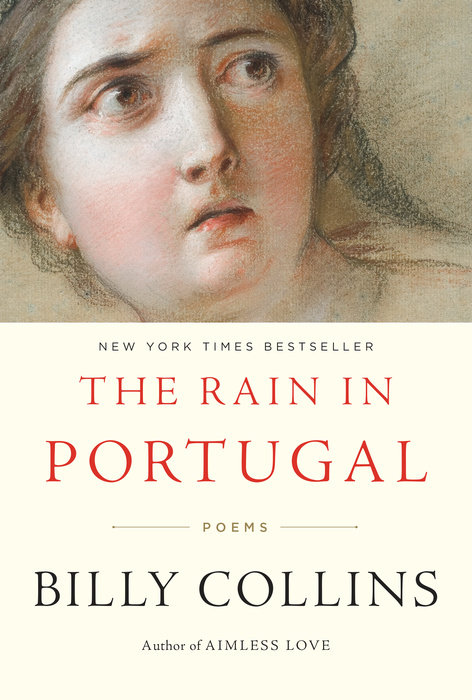Billy Collins Handles Death Lightheartedly in New Poetry Collection
In a review partly titled "popular poetry is good poetry," The Post and Courier's John Cusatis reflects on Billy Collins's twelfth collection, The Rain in Portugal (Random House), writing that the poet is at his best in this one, that "the terrain Collins explores in these 56 poems is his richest and most varied." More:
While a few poems confront the institutions that restricted him in his youth, in general, the book serves as a counterforce to the most intractable authority of all: Time. The setting for “Mister Shakespeare” is the high school classroom, where poetry is often reduced to academic subject matter, “enough to make us forget where poems begin.”
In “Genuflection,” Collins expresses deep reverence at the sight of a blue heron, while recalling the ritual restrictiveness of his altar boy days, which required him to keep his “palms pressed together in prayer / right thumb crossed over the left, and never the other way around.”
Many of Collins’ poems are themselves prayer-like, praising “the siren songs of an ordinary day” in “Santorini,” and communion with nature in “Tanager.”
Death often lurks in the periphery. In “The Present” he states that the present moment, we are told, is “the place to be ... / like the latest club on the downtown scene / But no one, it seems, is able to give you directions.” For Collins, art, especially poetry, can provide the directions. His poems entice the reader to slow down and pay attention to daily life. “Is not poetry,” he writes in “Greece,” “a megaphone / held up to the whispering lips of death?”
Yet Collins handles death as lightheartedly as he does more mundane subject matter. In “Helium,” a drive through the business section of an Ohio town causes him to reflect on his mortality. In the end, he is less distraught with the notion of his dying than with the thought that “Balloon Designs by Pauline” might outlive him.



